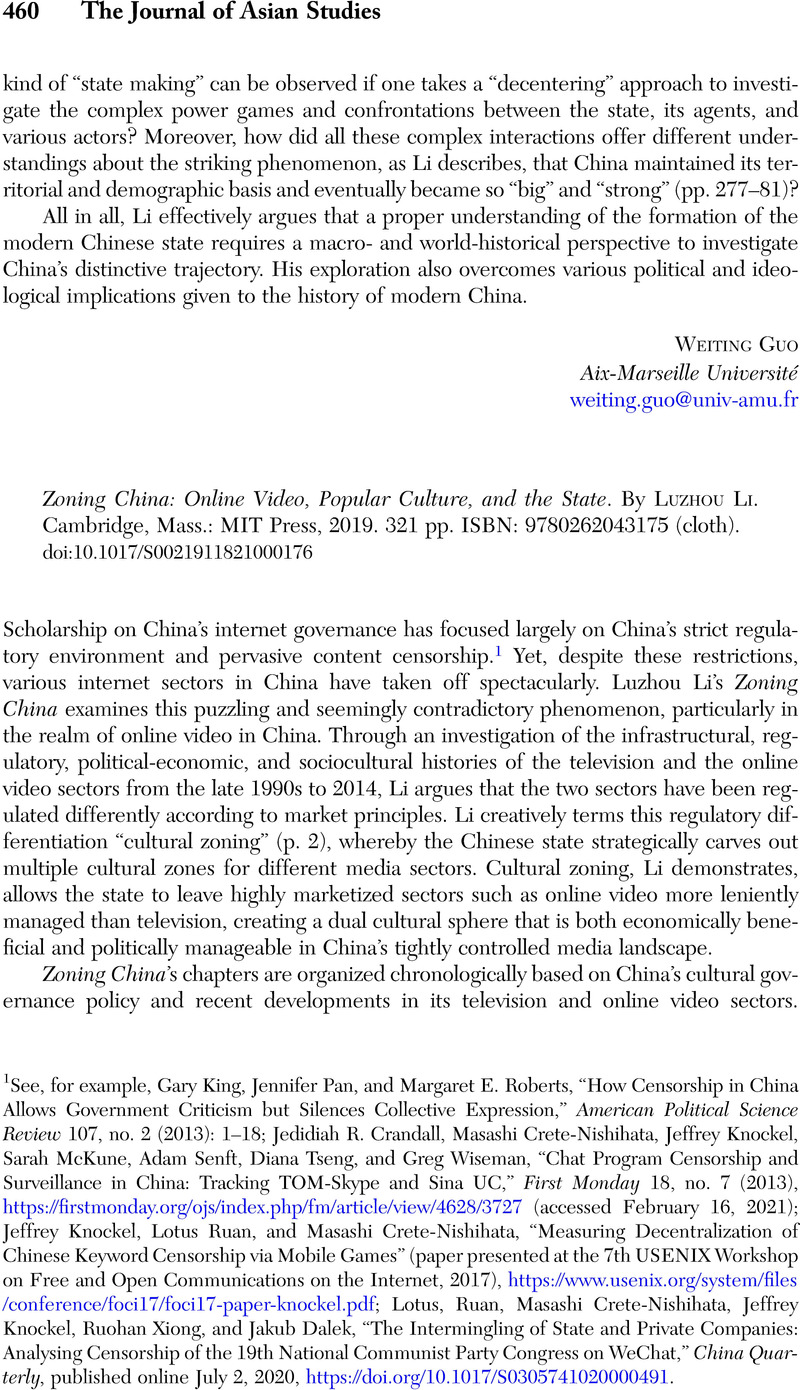No CrossRef data available.
Published online by Cambridge University Press: 17 May 2021

1 See, for example, King, Gary, Pan, Jennifer, and Roberts, Margaret E., “How Censorship in China Allows Government Criticism but Silences Collective Expression,” American Political Science Review 107, no. 2 (2013): 1–18CrossRefGoogle Scholar; Crandall, Jedidiah R., Crete-Nishihata, Masashi, Knockel, Jeffrey, McKune, Sarah, Senft, Adam, Tseng, Diana, and Wiseman, Greg, “Chat Program Censorship and Surveillance in China: Tracking TOM-Skype and Sina UC,” First Monday 18, no. 7 (2013)Google Scholar, https://firstmonday.org/ojs/index.php/fm/article/view/4628/3727 (accessed February 16, 2021); Jeffrey Knockel, Lotus Ruan, and Masashi Crete-Nishihata, “Measuring Decentralization of Chinese Keyword Censorship via Mobile Games” (paper presented at the 7th USENIX Workshop on Free and Open Communications on the Internet, 2017), https://www.usenix.org/system/files/conference/foci17/foci17-paper-knockel.pdf; Lotus, Ruan, Masashi Crete-Nishihata, Jeffrey Knockel, Ruohan Xiong, and Jakub Dalek, “The Intermingling of State and Private Companies: Analysing Censorship of the 19th National Communist Party Congress on WeChat,” China Quarterly, published online July 2, 2020, https://doi.org/10.1017/S0305741020000491.
2 King et al., “How Censorship in China Allows Government Criticism but Silences Collective Expression.”